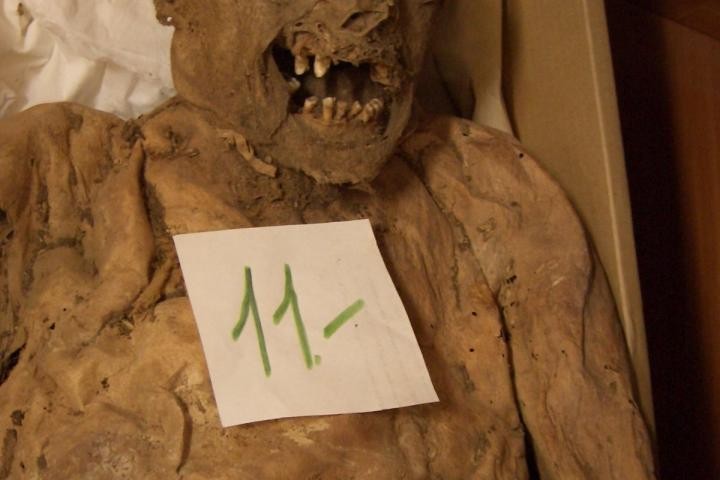Genetic predisposition to colorectal cancer was recently discovered in an 18th century Hungarian mummy. The findings were published in PLOS ONE journal, titled “Detection of a Tumor Suppressor Gene Variant Predisposing to Colorectal Cancer in an 18th Century Hungarian Mummy.”
According to a study published in The Lancet journal, colon cancer identified by the growth of tumor cells in some parts of the large intestine affects more than 1 million people worldwide every year. Though the causes of this disease are not fully established, modern studies have linked its development to a combination of genetic mutations in what is called the Adenomatous polyposis coli (APC) gene, along with modern lifestyle habits such as lack of physical activity, obesity, and a rich diet based on processed foods. The origins of this disease are still debated, and it is not known which of the two factors, genetic or lifestyle, came first.
Researchers from Tel Aviv University (TAU), in collaboration with the American Friends of Tel Aviv University (AFTAU), used genetic sequencing to screen for mutations of APC genes in mummified tissues taken from mummies excavated from sealed crypts found in the Dominican church in Vác, Hungary. The crypts were used from 1731 to 1838 to bury the dead of middle-class families and clerics in the region.
“Colorectal cancer is among the most common health hazards of modern times,” study author Dr. Rina Rosin-Arbesfeld, of the Department of Clinical Microbiology and Immunology at TAU’s Sackler Faculty of Medicine, said in a news release. “And it has a proven genetic background. After hearing that tuberculosis had been discovered in the corpses, I was interested in seeking out a number of gene mutations known to be associated with colorectal cancer.”
“Mummified soft tissue opens up a new area of investigation,” said study author Prof. Israel Hershkovitz, from the Department of Anatomy and Anthropology at the Sackler Faculty. “Very few diseases attack the skeleton, but soft tissue carries evidence of disease. It presents an ideal opportunity to carry out a detailed genetic analysis and test for a wide variety of pathogens.”
The results suggest that the preserved tissues contain APC mutations, and researchers are working to set up a special lab to study ancient DNA. “Our data reveal that one of the mummies may have had a cancer mutation. This means that a genetic predisposition to cancer may have already existed in the pre-modern era,” said Ella H. Sklan of the Department of Clinical Microbiology and Immunology at TAU’s Sackler Faculty of Medicine. “But we’ve found this mutation in only one individual so far. Additional studies with a larger sample size should be conducted in order to draw more meaningful conclusions.”
The corpses analyzed in the study belonged to a group of more than 265 mummies uncovered in 1995 from sealed crypts that provided ideal conditions for the mummification of tissues. The preservation of the abundant tissue samples made them suitable for genetic studies such as the one performed in this investigation.
Image Credit: Tel Aviv University


